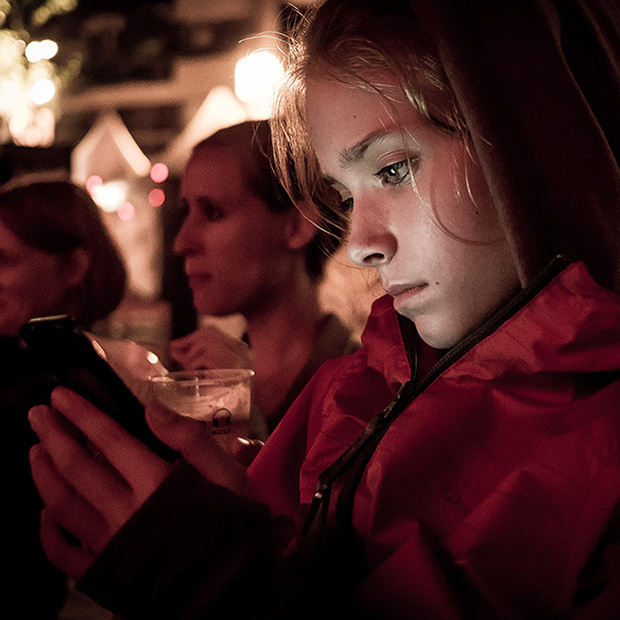The Effects Of Blue Light

Nearly two decades into the 21st century, most of us have nightly rituals that include checking our smartphones before bed.
This might not be the healthiest way to end our days. Many eye doctors are concerned about the effects our screen time could have on our vision and our health, and the main cause of that concern is blue light.
What Is Blue Light?
You might remember from your high school science classes that the electromagnetic spectrum ranges from low-energy radio waves to high-energy gamma waves. The colors and light we see make up a very small sliver of this spectrum. Waves of blue light scatter more easily than the others, which is what makes the sky and large bodies of water appear blue.
Blue Light And Our Brains
The main source of blue light is the sun, and our bodies are programmed to respond to that light. During the day, the blue light in sunlight boosts our attention, memory, energy levels, reaction times, and overall mood. It’s the signal to our brains that we should be up and about. Absence of blue light signals that we should be resting.
The problem in modern times is that we are surrounded by artificial sources of blue light that confuse these signals, particularly LED and fluorescent lights and the screens of our electronic devices. Blue light suppresses the release of melatonin in our brains, which leads to a lower quality of sleep, which in turn can contribute to a variety of negative health effects.
Blue Light And Our Eyes
The visible light with the highest intensity is blue light, and just above it on the spectrum is UV radiation. One concern is that, because blue light is so close to UV radiation in wavelength, it might be similarly harmful, particularly to our vision. The screens on our electronic devices may not emit light anywhere near as bright as sunlight (which contains both blue light and UV radiation), but the time we spend staring at our screens is time we spend exposing our eyes to blue light.
It’s not clear yet how much blue light exposure is enough to cause lasting harm to our vision, but it could be contributing to macular degeneration (loss of central vision), a condition normally associated with advancing age. To be on the safe side, we would be wise to limit our exposure.
[iframe https://www.youtube.com/embed/k-MJuuT7uqI?rel=0 620 349]
Cutting Back On The Blue
To avoid blue light’s adverse effects on our sleep cycles, we should avoid looking at screens in the last hour or two before bed. If that sounds difficult, there are other options, all of which can also help with minimizing the effects of blue light on our vision.
- Use warmer lighting in your home by buying more yellow-tinted LED lightbulbs instead of the bright white ones.
- Wear orange tinted glasses that filter out blue light while working at your office computer, or use a screen protector that does the same without altering your entire field of vision.
- Use screen filters or apps on your devices that eliminate blue light. The colors will be very different, but the screen will be easier on your eyes in the late evening.
Get Started With An Eye Exam
If you’re concerned about the effect blue light may be having on your eyes, schedule an eye exam with us. We can determine whether there is any damage and help you come up with a plan to minimize harmful variables such as UV and blue light.
